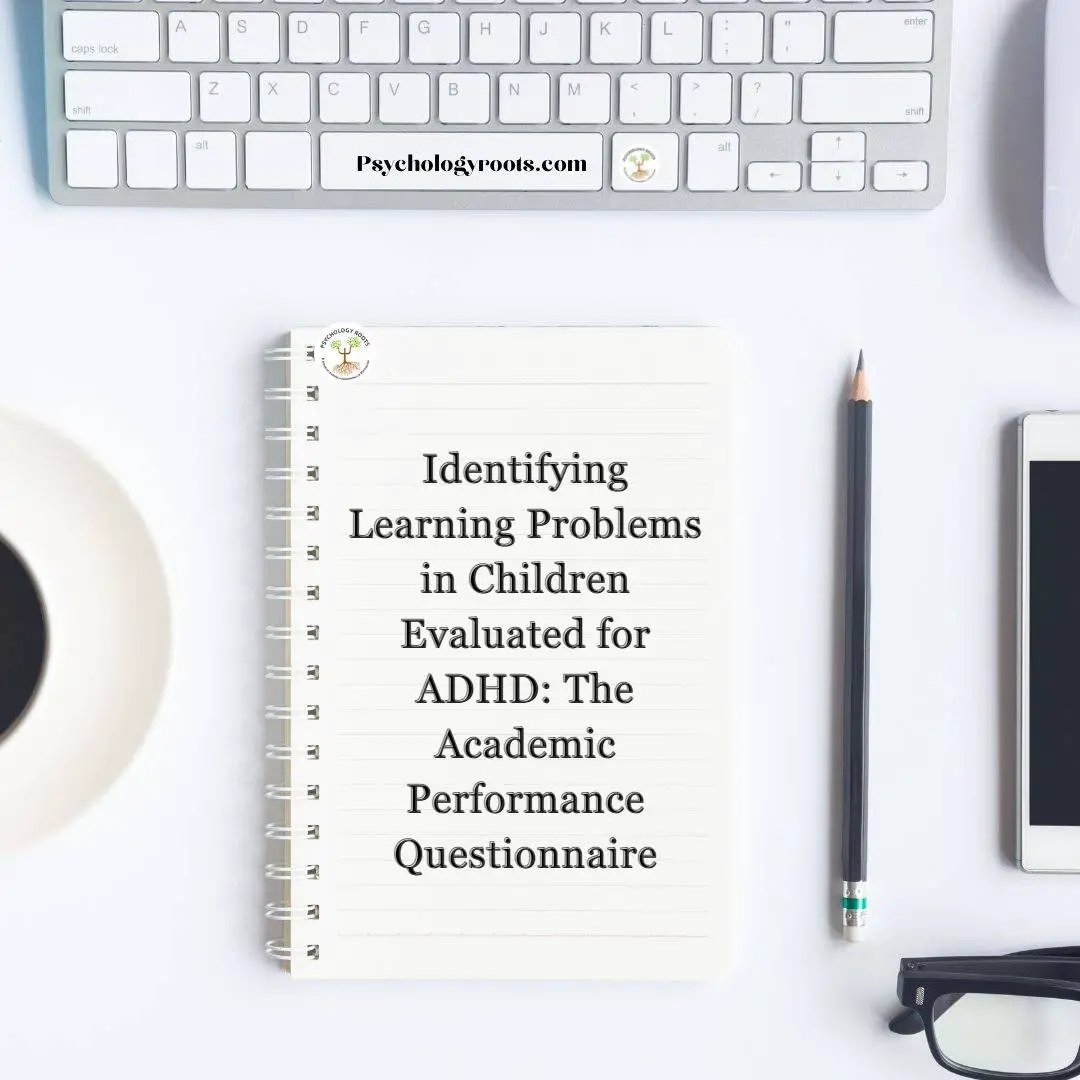Table of Contents
Identifying Learning Problems in Children Evaluated for ADHD: The Academic Performance Questionnaire
Here in this post, we are sharing the article on “Identifying Learning Problems in Children Evaluated for ADHD: The Academic Performance Questionnaire”. You can read the abstract of the article with a download link. We have thousands of articles in our collection (See articles). You can demand us any article related to psychology through our community, and we will provide you within a short time. Keep visiting Psychology Roots.
Abstract of the Article
OBJECTIVE: The objective of this study was to assess the usefulness of the Academic Performance Questionnaire (APQ) to identify low reading and math achievement in children who are being evaluated for attention-deficit/hyperactivity disorder (ADHD).
METHODS: Charts of 997 patients who were seen in a multidisciplinary ADHD evaluation program were reviewed. Patients who were in first through sixth grade and had complete APQ and Wechsler Individual Achievement Test II Basic Reading and Numerical Operations subtests were enrolled in this study. The 271 eligible patients were randomly assigned to a score-development group (n = 215) and a validation group (n = 56). By using data from the score-development sample, APQ questions that predicted low academic achievement were identified and the scores for these questions were entered into a logistic regression to identify the APQ questions that independently predicted low achievement.

Identifying Learning Problems in Children Evaluated for ADHD: The Academic Performance Questionnaire
RESULTS: Only 2 APQ questions, 1 about reading and 1 about math, independently predicted low achievement. By using these 2 questions, the area under the receiver operating characteristic curve was 0.834, and the optimal combination of sensitivity and specificity occurred when the total score for the 2 items was >4. This cutoff had a sensitivity of 0.86 and a specificity of 0.63 in the score development group and a sensitivity of 1.0 and a specificity of 0.53 in the validation sample.
CONCLUSIONS: The APQ may be a useful screening tool to identify children being evaluated for ADHD who need additional testing for learning problems. Although the predictive value of a negative screen on the APQ is good, the predictive value of a positive test is relatively low.
Authors of the Article
- Amanda E. Bennett
- Thomas J. Power
- Ricardo B. Eiraldi
- Stephen S. Leff
- Nathan J. Blum
Avail Article [sociallocker id=64051]
[/sociallocker]
Need Any Other Article:
Are you looking for any other article? Don’t Worry, We provide you free and quickly. Just need to create a query in our community.
Information:
The purpose of our website is only to help students to assist them in finding the best suitable instrument for their research especially in Pakistan where students waste a lot of time in search of the instruments. It is totally free of cost and only for creating awareness and assisting students and researchers for good researches. Moreover, it is necessary for you to take the permission of scales from their representative authors before use because copyrights are reserved by the respected authors.
Help Us Improve This Article
Did you find an inaccuracy? We work hard to provide accurate and scientifically reliable information. If you have found an error of any kind, please let us know.
Add comment. we appropriate your effort.
If you have any scale or any material related to psychology kindly share it with us at psychologyroots@gmail.com. We help others on behalf of you.
Follow